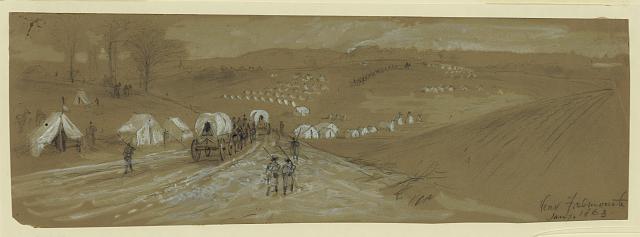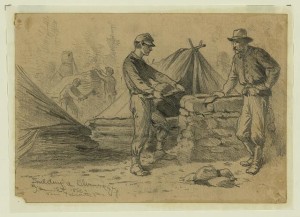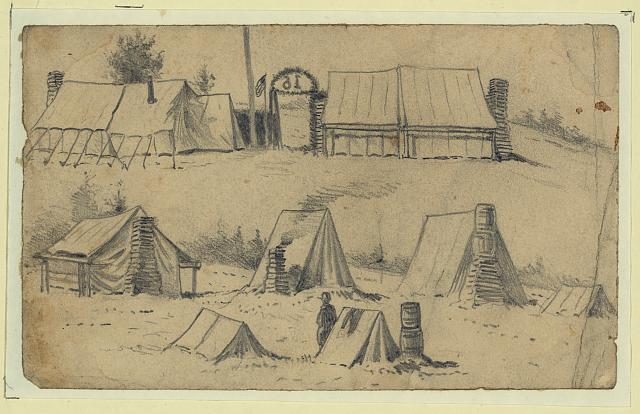From a Seneca County, New York newspaper on January 3, 1863:
CONFIDENCE IN THE ARMY OF M’CLELLAN. –
S.P. Allen, Esq. editor of the Rochester Democrat, on a visit to the Army of the Potomac, at Fredericksburg, writes that paper an account of what he saw and heard. Mr A. has never been partial to McClellan, but he is forced to say:
“Sleeping being out of the question, I crept out quietly before daylight, and mingled with the soldiers around their little fires. It was very cold and they found it difficult to keep themselves warm. The war was the general theme. The late repulse was invariably followed by something about Burnside and McClellan, and the merits of this and that plan. There is no feeling against Burnside, but on the contrary one of kindness; but it is nevertheless true that those who have served under McClellan have great confidence in him.
All other things being equal, it is a great point to secure a leader in whom the soldiers have confidence. It is the duty of the Administration to thoroughly weigh all the legitimate considerations in the case, and decide the question without a thought to anything else but the cause of the country, and its speedy triumph. If the soldiers are right, and the Administration after a fair trial are satisfied that McClellan is our military leader, for one I say let him be restored to the command.”
But President Lincoln and his administration didn’t have confidence in General McClellan.
According to The story of the Thirty-third N.Y.S. vols.; or, two years campaigning in Virginia and Maryland (by David W. Judd (page 255)) the men in the Army of the Potomac had supposed that the Lincoln Administration ordered Burnside to attack at Fredericksburg, but then they learned that Burnside took full responsibility: “From that time forward, the army questioned his [Burnside’s] military capacity, but could not refrain from admiring his qualities as a man.”



